Refine
Date Range Clear
Recorded by Clear
Keywords Clear
- history of medicine 6
- Childhood Games 6
- World War II 6
- family in-jokes 6
- Civil Rights Movement 6
- personal experiences 6
- Appearance 3
- college 3
- family naming and nicknames 3
- family trips and excursions 3
- historical events/people 3
- 165 more
Partnerships Clear
Organizations Clear
- No matching terms.
Places Clear
Languages Clear
Initiatives Clear
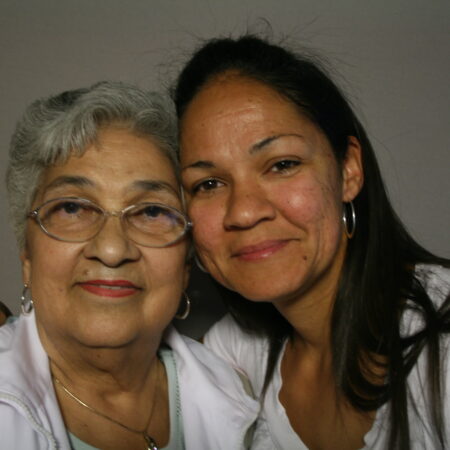
Chandra Blackwell, 40, interviews her mother Nadine Blackwell, 80, about her memory and involvement in Brown vs. the Board of Education, integrating the Topeka Fire Department, and integrating the downtown Topeka restaurants.
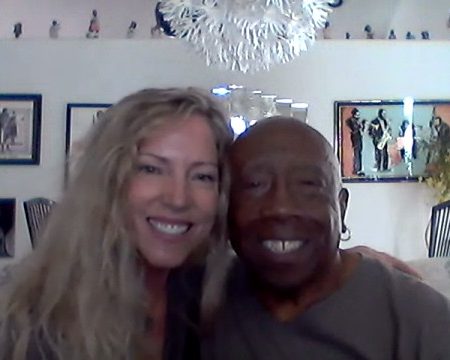
Fred Edward (82) shares about his life with his friend Amaryllis Rieck (48). Fred talks about his experience in the Air Force during the Vietnam and Korean War, draws parallels between the Civil Rights Movement and the current Black Lives...
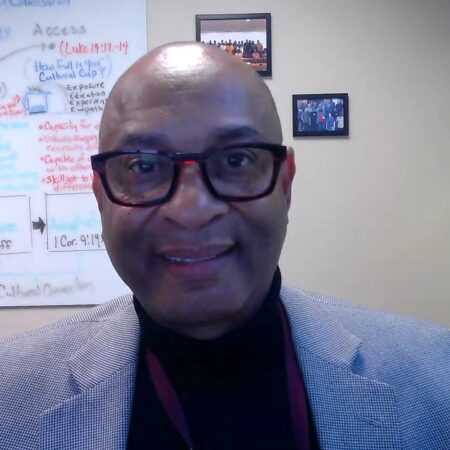
One Small Step partners Harold Lewis (61) and Matthew "Scott" Knox (48) share stories about their different lived experiences as a Black man growing up in the segregated South and a gay man growing up in the Northeast.
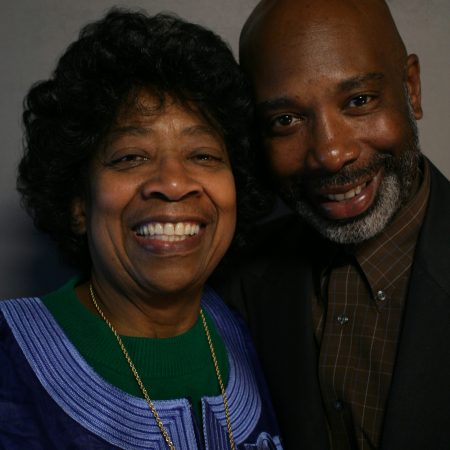
Melvin Taylor (49) asks his associate Doris Green about her career as an ethnomusicologist, her creation of Greenotation (an integrated score of percussive music and dance notation), and the time she spent traveling in Africa to learn more about the...
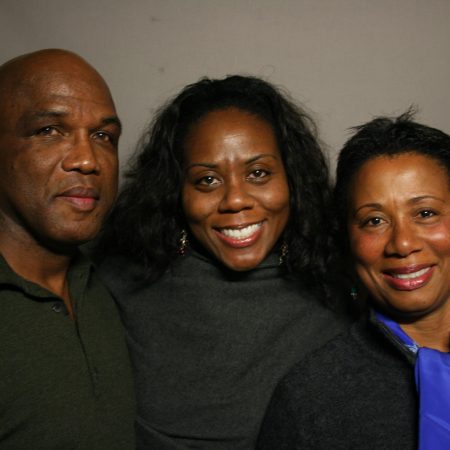
Tricia Nelson interviews her parents, Horace and Carol Nelson about their decision to marry and immigrate to the United States at a very young age.
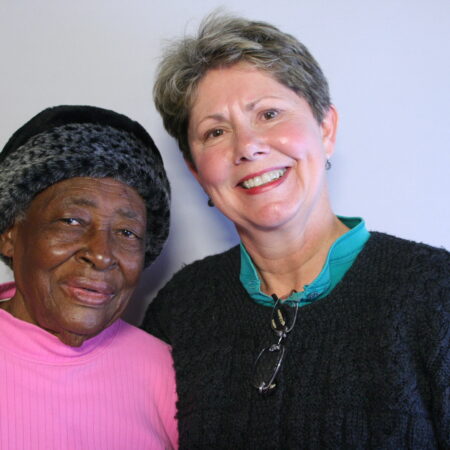
Claire interviews Emma Lou about growing up in Chestnut, Alabama. Emma Lou remembers from childhood about her mother, great-grandmother and her brother, Jim.

Ellie Bryan (21) talks to her friend Jeanne Boutang Croud (59) about her upbringing in Minneapolis and her racial identity - her mother is white, her father is biracial. Ellie is usually assumed to be white by people.
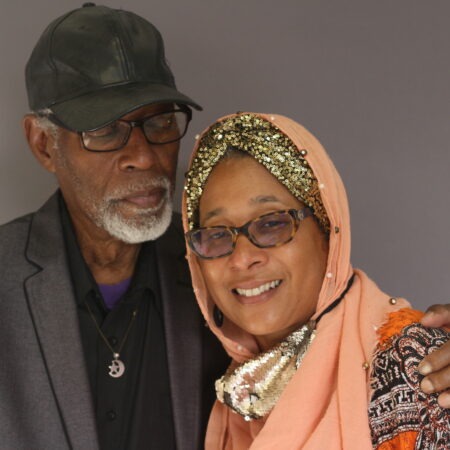
Kenyatta Bakeer (50) interviews her father, Donald Bakeer (77), about meeting and falling in love with her mother, his work organizing for Black liberation, and his writing.
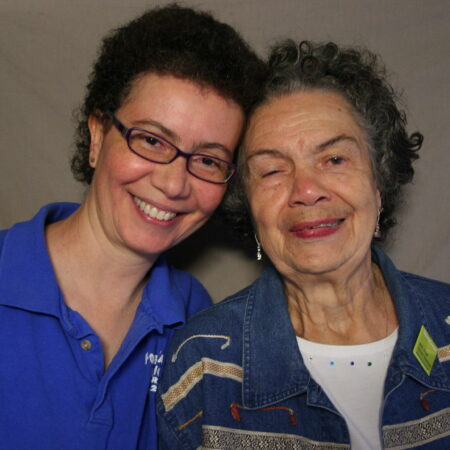
Georgie talks with her daughter Sonia Walker about growing up in Buffalo, the illnesses Georgia has suffered and the strength and perseverance they have learned as family.
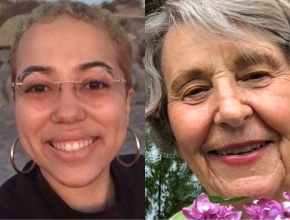
One Small Step conversation partners Carolyn Young [no age given] and Hawwa Youngmark [no age given] discuss navigating their different identities, dealing with tragedy, their faith, and their shared love of comic books.
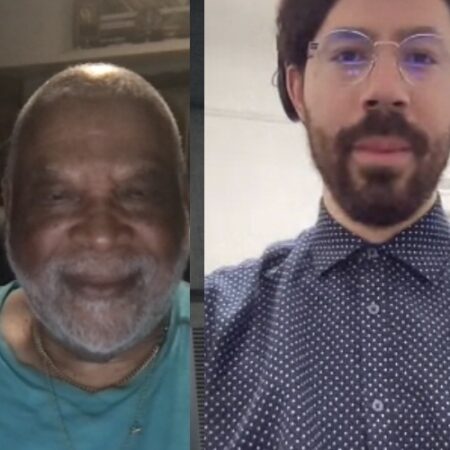
Jarrod Sport (37) interviews conversation partner and new friend Dr. Donald Felder (73) about his personal experience with school desegregation.
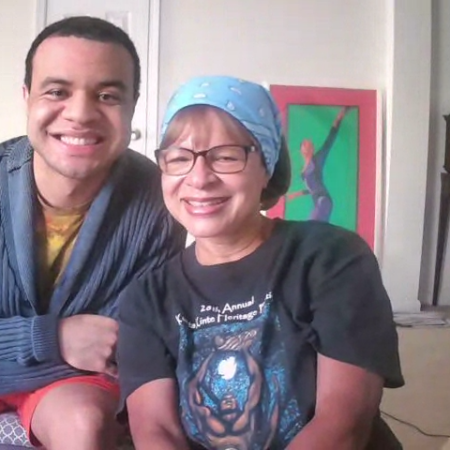
Jacquelyn Stokes (65) and her son Quenton Stokes-Brown (25) discuss the members of their family who have served in the military: Dr. Lewis Wright Jr, Thomas Elder Stokes, Charles “Sonny” Couch, Wadesworth Brown Jr, and Jasen Wadesworth Brown.
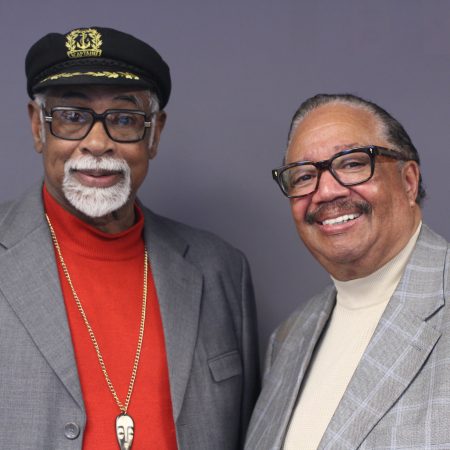
Dr. Bill Adkins (72) and friend, Dr. LaSimba Gray Jr. (73) discuss the history of the community of Memphis, mutual accomplishments in the civil rights movement, and the importance to transition information to the up-and-coming generation.